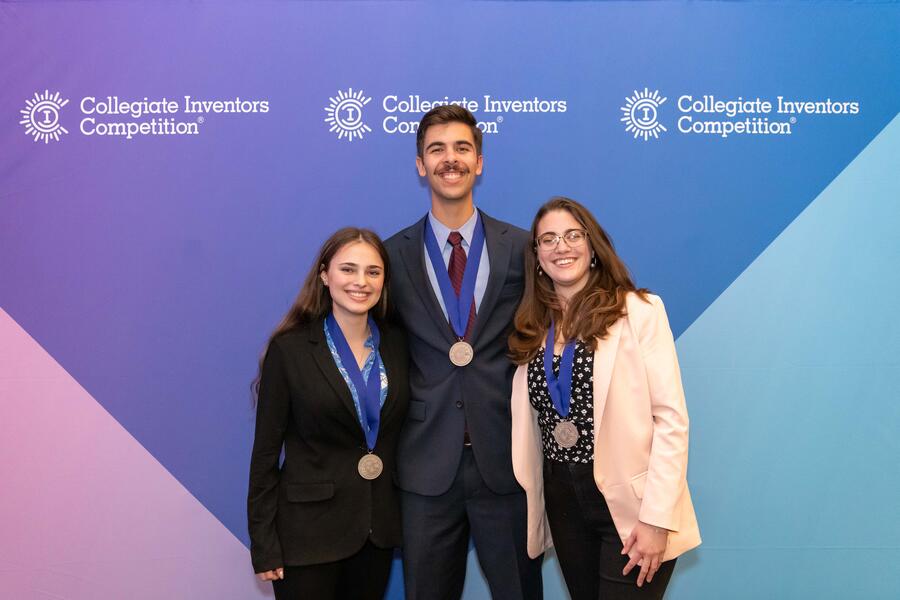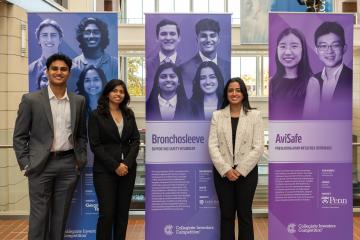A Johns Hopkins student team was named the undergraduate runner-up in the 2024 Collegiate Inventors Competition for their technology to improve fetal surgeries that treat life-threatening birth defects.
Winners of the annual competition were announced last week after 10 finalist teams, made up of 19 students from nine colleges and universities across the United States, presented their projects to contest judges at the U.S. Patent and Trademark Office (USPTO) in Alexandria, Virginia.
The Hopkins team includes biomedical engineering undergraduates Gloria Kalnitskaya, Ayeeshi Poosarla, and Alice Yu; biomedical engineering master's student Eric McAlexander; and Selena Shirkin, a master's student in the Center for Bioengineering Innovation and Design (CBID).
The team members are optimistic that their success in the competition marks the beginning of even greater achievements.
"The funding is great, but the real prize is the patent accelerator, which will help us get a utility patent for our device much faster," said McAlexander. "The connections we made with experts in the USPTO and the National Inventors Hall of Fame, and with other like-minded student innovators, will help us refine our intellectual property strategy."
Clinicians can perform minimally invasive surgeries to correct a variety of birth defects and other conditions in babies before birth. The ultrasound-guided procedures involve accessing the uterus through a port inserted through the mother's abdomen, allowing instruments to be passed through the port to carry out fetal surgery.
Despite recent advances, fetal procedures are risky. For example, even a small membrane rupture during surgery can lead to premature birth. Shirkin says these procedures have a 40% average complication rate, at least in part because the surgical tools currently used for fetal surgery were designed for other procedures.
The student team's FetalCare Port System is the first access-port system specifically designed for the uterine environment. The system has two key features: a sharper introducer needle, also known as an obturator, that can more precisely cut through the uterine wall, and a port sheath that radially expands, allowing surgeons to insert varying sizes of instruments into the uterus. Their system's unique design minimizes the risk of membrane rupture and supports safer, more efficient fetal surgeries, the inventors say.
"Our end goal is to create a device that can reduce that complication rate from 40% to zero," said Shirkin. "We've been about to push our project far beyond the classroom because we are all passionate about the problem that we are solving and the people we have the privilege to work with."
The project emerged from the undergraduate design team program offered by the Department of Biomedical Engineering, which is shared by the university's schools of Medicine and Engineering. Elizabeth Logsdon, director of the biomedical engineering undergraduate program, and Ahmet Baschat, director of the Johns Hopkins Center for Fetal Therapy and professor in the Department of Gynecology and Obstetrics, advised the team.
A program of the National Inventors Hall of Fame, the Collegiate Inventors Competition recognizes and rewards the research, innovations and discoveries by college students and their advisers for projects leading to inventions that have the potential of receiving patent protection. Johns Hopkins has had 40 finalist teams in the competition since its inception in 1990.
Posted in Science+Technology
Tagged biomedical engineering, collegiate inventors competition









